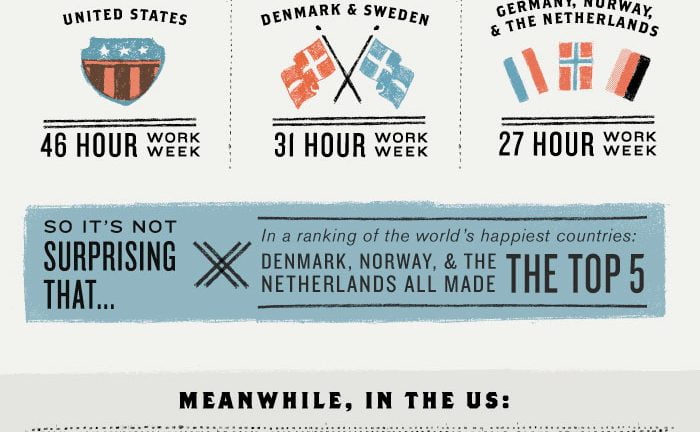How productive are employees after they surpass 40 hours of working in a single week?
As an employer, it is important to get as much productivity out of your employees as possible.
It would make sense, then, to have your employees work as many hours as possible in a single week to maximize their potential productivity, right?
See also: How to Manage Email Overload [Infographic]
Not necessarily – according to an infographic (posted below) recently published by OnlineMBA.com.
The infographic reveals some very interesting information in regards to how productive employees really are once they pass the 40 hours of working mark in a single week. It also reveals that Americans are working more hours per week, on average, yet earning less than they did in the 1970s.
I am a big proponent of hard work but I also realize that, in order to be as productive as possible when you are working, you need to be well rested!
Statistics of Employee Productivity When Working Over 40 Hours in a Week:
- 33% of Americans work more than 50 hours per week.
- 55% of Americans are dissatisfied with their jobs.
- In 1960, only 20% of American parents both had jobs; in 2010, 70% of parents both had jobs.
- In 1970, the average American worked 35 hours a week and earned $59,000 per year (adjusted for inflation).
- In 2012, the average American works 46 hours a week and earns $51,000 per year.
- 6 countries that rank in the top 10 for having the most competitive economies prohibit employees from working over 48 hours per week.
- Denmark, Norway and the Netherlands all rank in the top 5 for countries in terms of overall happiness and all have work weeks of 31 hours or less.
- 75% of Americans feel stressed at work.
- Workplace stress costs U.S. employers an estimated $200 billion per year in lost productivity.
- Statistics show that, although 60 hour works weeks will increase productivity in the short term, the long term effects result in lost productivity (after the 4th week).







